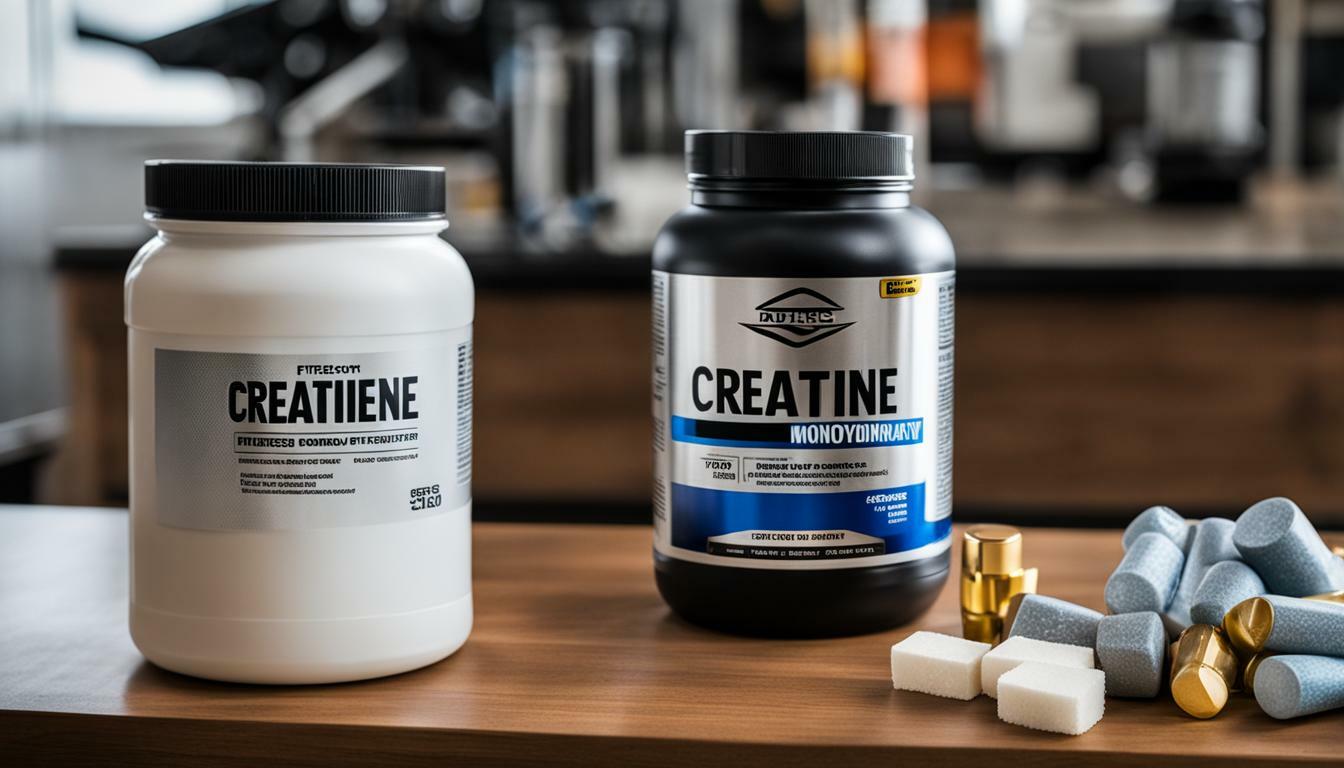When it comes to choosing a multivitamin, understanding the difference between organic and conventional options is essential for making an informed decision. Organic multivitamins are derived from natural food sources, such as fruits and vegetables, and are considered “whole foods.” On the other hand, conventional multivitamins are synthetic and created in a lab to mimic natural vitamins.
Studies suggest that the body may more easily absorb vitamins in their natural form because of the variety of nutrients and enzymes present in whole foods. However, it is possible for some synthetic vitamins to be easier to absorb depending on the presence of other nutrients in the body.
While the benefits of multivitamins are inconclusive overall, they can be beneficial for individuals who are vitamin deficient, vegetarian, or elderly. For those with fully nutritious diets, a well-rounded diet is considered the best way to obtain nutrients, but taking a multivitamin is better than going without.
Organic multivitamin drops are often more expensive but may be easier for the body to digest, making them a suitable choice for children and individuals with sensitive stomachs. Traditional multivitamins are cheaper and typically come in once-a-day forms, making them more convenient for adults. Ultimately, it is generally better to take any type of multivitamin supplement than to take none. However, it is important to consult a healthcare professional to determine the proper dosage and to address any adverse symptoms.
Key Takeaways:
- Organic multivitamins are derived from natural food sources, while conventional multivitamins are synthetic.
- Natural vitamins in whole foods may be more easily absorbed by the body due to the presence of various nutrients and enzymes.
- Multivitamins can be beneficial for individuals who are vitamin deficient, vegetarian, or elderly.
- A well-rounded diet is considered the best way to obtain nutrients, but taking a multivitamin is better than going without.
- Consulting a healthcare professional is important to determine the proper dosage and address any adverse symptoms when taking multivitamins.
Organic Multivitamins: Benefits and Composition
Organic multivitamins are derived from natural food sources, such as fruits and vegetables, making them a popular choice among health-conscious individuals. These multivitamins are considered “whole foods” because they are made from real, unprocessed ingredients. This means that they retain the natural form of vitamins and minerals found in the food sources, along with their associated benefits.
One of the key advantages of organic multivitamins is their composition. They typically contain a wide range of nutrients, including essential vitamins, minerals, antioxidants, and phytochemicals. These nutrients work synergistically together, enhancing their overall effectiveness and absorption in the body. Studies suggest that the presence of other nutrients and enzymes in whole foods may improve the bioavailability of vitamins, allowing the body to better absorb and utilize them.
Moreover, organic multivitamin ingredients are often sourced from certified organic farms, ensuring that they are free from synthetic pesticides, herbicides, and genetically modified organisms (GMOs). This makes them a cleaner and healthier option compared to conventional multivitamins, which may contain synthetic additives and fillers.
| Benefits of Organic Multivitamins |
|---|
| 1. Enhanced Nutrient Absorption: The natural form of vitamins and minerals in organic multivitamins may be more easily absorbed by the body due to the presence of various nutrients and enzymes in whole foods. |
| 2. Whole Food Nutrition: Organic multivitamins provide a complete spectrum of nutrients found in natural food sources, offering comprehensive health benefits. |
| 3. Clean and Environmentally Friendly: Organic multivitamin ingredients are sourced from certified organic farms, which prioritize sustainable farming practices and avoid the use of synthetic chemicals. |
| 4. Free from Synthetic Additives: Organic multivitamins are free from synthetic additives, fillers, and potentially harmful substances commonly found in conventional multivitamins. |
Overall, organic multivitamins offer a natural and holistic approach to supporting overall health and well-being. However, it is important to note that individual needs and dietary preferences should be taken into consideration when choosing a multivitamin. It is always recommended to consult a healthcare professional for personalized advice and to determine the appropriate dosage for your specific needs.
Conventional Multivitamins: Benefits and Composition
Conventional multivitamins offer a convenient option for individuals seeking to supplement their nutrient intake, thanks to their synthetic composition. These multivitamins are carefully formulated in lab settings to mimic the natural vitamins found in whole foods. While organic multivitamins are derived from natural sources like fruits and vegetables, conventional multivitamins are created using synthetic compounds.
One of the benefits of conventional multivitamins is their standardized composition. Each pill or tablet contains a specific amount of vitamins and minerals, making it easier to accurately track nutrient intake. This can be particularly helpful for individuals with specific dietary restrictions or those who require precise dosage levels.
Moreover, conventional multivitamins often come in once-a-day forms, making them convenient and easy to incorporate into a daily routine. These compact and portable supplements provide a hassle-free way to ensure you’re meeting your daily recommended intake of essential vitamins and minerals.
When considering the composition of conventional multivitamins, it is important to note that while they may not offer the same variety of nutrients and enzymes found in whole foods, their synthetic nature allows for a more controlled formulation. Additionally, certain synthetic vitamins can have higher bioavailability and absorption rates, especially when combined with other nutrients present in the body.
| Vitamin | Conventional Multivitamin Source |
|---|---|
| Vitamin A | Synthetic retinyl palmitate or retinol acetate |
| Vitamin C | Synthetic ascorbic acid |
| Vitamin D | Synthetic cholecalciferol |
Although conventional multivitamins may not offer the same potential benefits as their organic counterparts, they can still play a valuable role in supporting overall health and filling nutrient gaps in the diet. It is essential to remember that everyone’s nutritional needs are unique, and consulting a healthcare professional is recommended to determine the most suitable multivitamin for your specific requirements.
Absorption and Bioavailability of Organic Multivitamins
Studies suggest that organic multivitamins may offer higher bioavailability and absorption rates compared to their synthetic counterparts. This is mainly due to their natural form, which includes a wide variety of nutrients and enzymes that can enhance the absorption of vitamins in the body.
One key factor contributing to the higher bioavailability of organic multivitamins is their source. These vitamins are derived from whole food sources, such as fruits, vegetables, and herbs, which contain a complex matrix of nutrients that work synergistically to support optimal absorption. For example, vitamin C in organic multivitamins is often sourced from acerola cherries, which naturally contain bioflavonoids and other phytonutrients that enhance its absorption.
Furthermore, organic multivitamins are typically free from synthetic additives and fillers that can hinder absorption. By focusing on natural ingredients, these multivitamins provide the body with vitamins in a form that closely resembles what is found in nature, allowing for better utilization by the body.
In summary, choosing organic multivitamins can potentially offer benefits in terms of higher bioavailability and absorption compared to conventional multivitamins. However, it’s important to note that individual responses may vary, and it is always advisable to consult with a healthcare professional to determine the best multivitamin option for your specific needs.
| Advantages of Organic Multivitamins |
|---|
| Higher bioavailability and absorption rates |
| Derived from natural food sources |
| Contain a complex matrix of nutrients and enzymes |
| Free from synthetic additives and fillers |
Absorption and Bioavailability of Conventional Multivitamins
While synthetic, conventional multivitamins also have advantages when it comes to absorption and bioavailability. Some studies suggest that certain synthetic vitamins can be easier for the body to absorb, especially when there are specific nutrients present in the body. For example, vitamin C can enhance the absorption of iron, which is commonly found in conventional multivitamin formulations. This can be particularly beneficial for individuals who have a known deficiency in these nutrients.
Additionally, conventional multivitamins are often formulated with specific dosage requirements, ensuring that individuals are getting the recommended amount of each vitamin and mineral. This standardized dosing can be helpful for those who struggle to maintain a balanced diet or have difficulty obtaining certain nutrients solely from food sources.
It’s important to note that while conventional multivitamins may have advantages in absorption and standardized dosing, they are still synthetic and may not provide the same level of bioavailability as vitamins derived from whole foods. Whole foods contain a variety of nutrients and enzymes that work together to optimize absorption in the body, which can be lacking in synthetic multivitamins.
| Advantages of Conventional Multivitamins |
|---|
| • Enhanced absorption of specific nutrients when combined with others |
| • Standardized dosing to ensure recommended nutrient intake |
| • Convenient option for individuals with difficulties maintaining a balanced diet |
While conventional multivitamins may offer advantages in terms of absorption and dosing, it’s important to remember that whole foods still provide the most bioavailable form of vitamins and minerals. If possible, it’s recommended to focus on obtaining nutrients from a well-rounded diet rather than relying solely on synthetic supplements.
In conclusion, while organic multivitamins have the advantage of being derived from natural food sources, conventional multivitamins can offer benefits in terms of absorption and standardized dosing. The choice between the two ultimately depends on individual needs and preferences. It’s always advisable to consult a healthcare professional before starting any multivitamin regimen to ensure the proper dosage and address any potential adverse symptoms.
Benefits of Multivitamins and Target Audience
Although the benefits of multivitamins are still debated, they can be particularly useful for specific populations who may have nutrient deficiencies or dietary restrictions. Multivitamins, whether organic or conventional, aim to provide essential vitamins and minerals that may be lacking in a person’s diet.
Organic multivitamins are derived from natural food sources, such as fruits and vegetables, and are considered “whole foods.” They contain a wide variety of nutrients and enzymes that are naturally present in these foods, making them potentially more easily absorbed by the body. This can be beneficial for individuals who are vitamin deficient or have difficulty obtaining these nutrients from their diet alone.
On the other hand, conventional multivitamins are synthetic and created in a lab to mimic natural vitamins. Although they may not offer the same range of nutrients as organic multivitamins, they can still provide essential vitamins and minerals. Conventional multivitamins are often more affordable and come in convenient once-a-day forms, making them a suitable choice for adults who may not have specific dietary restrictions.
Target Populations
There are certain populations who may benefit from taking multivitamins. Vegetarians and vegans, for example, may have limited dietary sources of certain vitamins, such as vitamin B12 found primarily in animal products. In this case, a multivitamin can help ensure that they are meeting their nutritional needs.
Elderly individuals may also benefit from multivitamins, as aging can lead to decreased absorption of certain nutrients. Additionally, individuals with specific medical conditions or undergoing certain treatments, such as bariatric surgery, may require additional supplementation to prevent deficiencies.
It is important to note that while multivitamins can be beneficial, they should not replace a well-balanced diet. Whole, unprocessed foods should always be the main source of nutrients. However, for those who may have nutrient deficiencies or dietary restrictions, multivitamins can help bridge the gap and ensure they are getting the essential vitamins and minerals they need.
| Pros of Organic Multivitamins | Pros of Conventional Multivitamins |
|---|---|
| Derived from natural food sources | Affordable and convenient |
| Potentially more easily absorbed by the body | Available in once-a-day forms |
| Suitable for individuals with sensitive stomachs | Provides essential vitamins and minerals |
Price and Form Factors: Organic vs. Conventional Multivitamins
When considering multivitamins, one important factor to consider is the price and form factors of organic and conventional options. Organic multivitamins are often more expensive but may offer additional advantages such as easier digestion, making them suitable for individuals with sensitive stomachs. These products are derived from natural food sources, ensuring that the body can recognize and absorb the nutrients more effectively. This can be particularly beneficial for those with dietary restrictions, as organic multivitamins are typically free from artificial additives and allergens.
On the other hand, conventional multivitamins are usually more affordable and come in convenient once-a-day forms. They are synthetically produced to mimic the natural vitamins found in whole foods. While some studies suggest that synthetic vitamins may not be as readily absorbed by the body, the specific composition and presence of other nutrients in the body can affect their absorption rates. For individuals without specific dietary concerns or restrictions, conventional multivitamins can still provide the necessary nutrients in a cost-effective manner.
Price and Form Factors Comparison:
| Organic Multivitamins | Conventional Multivitamins |
|---|---|
| More expensive | More affordable |
| Easier digestion | Convenient once-a-day forms |
| Derived from natural food sources | Synthetically produced |
| Free from artificial additives and allergens | – |
Ultimately, the choice between organic and conventional multivitamins depends on individual preferences, dietary needs, and budget. Consulting with a healthcare professional can provide personalized guidance on selecting the right multivitamin and determining the appropriate dosage. They can also help address any potential adverse symptoms or interactions with other medications. Remember, while multivitamins can be beneficial, they should not replace a well-balanced diet. A diverse and nutritious eating plan remains the best way to obtain essential nutrients for overall health and well-being.
Choosing the Right Multivitamin for You
With the variety of options available, it’s important to consider your unique needs and preferences when choosing between organic and conventional multivitamins. Both types have their advantages and can provide essential nutrients to support overall health. Here are some factors to consider:
- Dietary Preferences: If you follow an organic or vegetarian diet, organic multivitamins may align better with your lifestyle. They are derived from natural food sources without the use of synthetic additives.
- Specific Health Concerns: If you have specific health concerns, such as a vitamin deficiency or certain dietary restrictions, consulting with a healthcare professional can help determine which type of multivitamin is best suited for your needs.
- Budget: Price can be a deciding factor for many individuals. Organic multivitamins are often more expensive, but they may offer a higher quality product that is easier for the body to digest. Conventional multivitamins, on the other hand, are generally more affordable and widely available.
It’s worth noting that both organic and conventional multivitamins can play a role in supporting overall health. However, it is always recommended to prioritize a well-balanced diet as the primary source of nutrients. Multivitamins should be viewed as a supplement to fill in any nutritional gaps but not as a replacement for a healthy eating plan.
Before starting any multivitamin regimen, it is crucial to consult a healthcare professional. They can help determine the proper dosage based on your individual needs and address any potential adverse symptoms or interactions with other medications you may be taking.
Summing it Up
When it comes to choosing between organic and conventional multivitamins, the decision ultimately depends on your personal preferences, dietary choices, and budget. Organic multivitamins offer the advantage of being derived from natural food sources, while conventional multivitamins may be more affordable and convenient to use. Remember, a well-balanced diet should always be the foundation of your nutrient intake, and multivitamins should be used as a supplement to support overall health.
Importance of Consulting a Healthcare Professional
Before incorporating any multivitamin into your daily routine, it is crucial to seek guidance from a healthcare professional to ensure safety and effectiveness. While multivitamins can provide essential nutrients and support overall health, it is important to understand that individual needs may vary based on factors such as age, gender, health conditions, and lifestyle.
A healthcare professional, such as a doctor or registered dietitian, can assess your specific nutritional needs and recommend the most suitable multivitamin for you. They can consider any existing medical conditions, medications you may be taking, and potential interactions with other supplements to provide personalized advice.
In addition to dosage recommendations, a healthcare professional can also help identify any potential adverse symptoms or side effects that may arise from taking multivitamins. They can monitor your progress and make adjustments as needed, ensuring that you are reaping the maximum benefits from your chosen multivitamin.
| Benefits of Consulting a Healthcare Professional for Multivitamin Use | |
|---|---|
| 1. Personalized Guidance: A healthcare professional can assess your individual needs and recommend the most suitable multivitamin for you based on your age, gender, health conditions, and lifestyle. | 2. Safety and Effectiveness: They can ensure that the multivitamin you choose is safe and effective, taking into account any existing medical conditions or potential interactions with other medications or supplements. |
| 3. Monitoring and Adjustments: Healthcare professionals can monitor your progress and make adjustments to your multivitamin regimen as necessary, ensuring that you are getting the optimal benefits and addressing any adverse symptoms or side effects. | 4. Expert Advice: They can provide you with expert advice on proper dosage, timing, and any additional dietary changes that may enhance the absorption and effectiveness of the multivitamin. |
Overall, consulting a healthcare professional is essential for determining the right multivitamin for your specific needs. Their expertise will help you make informed decisions and ensure that you are taking the appropriate steps to support your overall health and well-being.
The Role of a Well-Balanced Diet
While multivitamins can provide supplements to a diet, they are not meant to replace the nutrients obtained from a well-balanced and diverse range of food sources. A nutritious diet consisting of fruits, vegetables, whole grains, lean proteins, and healthy fats is essential for obtaining the full spectrum of vitamins, minerals, and other essential nutrients that the body needs to function optimally. Vitamins and minerals found in whole foods are often accompanied by other beneficial compounds, such as antioxidants and phytochemicals, that work together synergistically to support overall health.
When it comes to obtaining the benefits of organic and conventional multivitamins, it’s worth noting that organic multivitamins are derived from natural food sources, which means they come with a wide range of nutrients beyond just the vitamins and minerals themselves. This can enhance their bioavailability and absorption by the body. However, conventional multivitamins can also provide essential nutrients in a convenient and affordable way. It’s important to consider individual needs and preferences when choosing the right multivitamin supplement.
In addition to taking multivitamins, incorporating a variety of nutrient-rich foods into your diet is crucial for optimal health. This includes colorful fruits and vegetables, whole grains, lean proteins, and healthy fats. By following a well-balanced diet, you can ensure that your body receives a wide array of nutrients and antioxidants that are vital for maintaining a healthy immune system, promoting proper growth and development, and supporting overall well-being.
| Organic Multivitamins | Conventional Multivitamins |
|---|---|
| Derived from natural food sources | Synthetic, created in a lab |
| May have higher bioavailability due to accompanying nutrients | Bioavailability may vary depending on the presence of other nutrients |
| Often more expensive | Typically more affordable |
| Suitable for individuals with sensitive stomachs | Convenient for adults |
Conclusion
When it comes to choosing between organic and conventional multivitamins, it’s important to consider the advantages, composition, and your own personal health goals to make the best decision for your well-being.
The main difference between organic and conventional multivitamins lies in their source and composition. Organic multivitamins are derived from natural food sources, such as fruits and vegetables, and are considered “whole foods.” On the other hand, conventional multivitamins are synthetic and created in a lab to mimic natural vitamins.
Studies suggest that the body may more easily absorb vitamins in their natural form because of the variety of nutrients and enzymes present in whole foods. However, it is possible for some synthetic vitamins to be easier to absorb depending on the presence of other nutrients in the body.
While the benefits of multivitamins are inconclusive overall, they can be beneficial for individuals who are vitamin deficient, vegetarian, or elderly. For those with fully nutritious diets, a well-rounded diet is considered the best way to obtain nutrients, but taking a multivitamin is better than going without.
Organic multivitamin drops are often more expensive but may be easier for the body to digest, making them a suitable choice for children and individuals with sensitive stomachs. Traditional multivitamins are cheaper and typically come in once-a-day forms, making them more convenient for adults. Ultimately, it is generally better to take any type of multivitamin supplement than to take none. However, it is important to consult a healthcare professional to determine the proper dosage and to address any adverse symptoms.
FAQ
Q: What is the difference between organic and conventional multivitamins?
A: Organic multivitamins are derived from natural food sources, while conventional multivitamins are synthetic and created in a lab. Organic multivitamins are considered “whole foods” and may be easier for the body to absorb.
Q: Are organic multivitamins better than conventional multivitamins?
A: Both types of multivitamins have their advantages. Organic multivitamins are derived from natural sources and may be more easily absorbed by the body. However, some synthetic vitamins in conventional multivitamins may also be easier to absorb depending on the presence of other nutrients in the body.
Q: Who can benefit from taking multivitamins?
A: Multivitamins can be beneficial for individuals who are vitamin deficient, vegetarian, or elderly. They can help fill in nutritional gaps and ensure that essential vitamins are being obtained.
Q: Are multivitamins necessary if I have a well-rounded diet?
A: While a well-rounded diet is considered the best way to obtain nutrients, taking a multivitamin can be beneficial, especially for those with specific dietary restrictions or deficiencies. It is always recommended to consult a healthcare professional to determine individual needs.
Q: Are organic multivitamin drops better than traditional multivitamins?
A: Organic multivitamin drops are often more expensive but may be easier for the body to digest. This makes them a suitable choice for children and individuals with sensitive stomachs. Traditional multivitamins are usually cheaper and come in once-a-day forms, making them more convenient for adults.
Q: Should I consult a healthcare professional before taking multivitamins?
A: It is important to consult a healthcare professional before starting any multivitamin regimen. They can help determine the proper dosage and address any potential adverse symptoms.
 Skip to main content
Skip to main content


